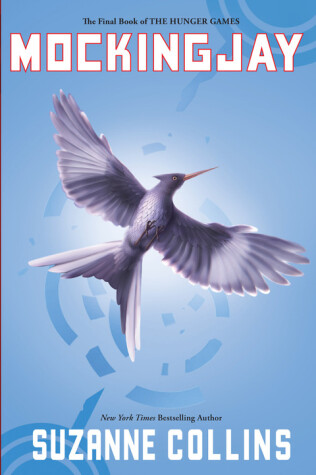Reviewed by jeannamichel on
This was the book that I had been waiting for, ever since I read the first in the series, The Hunger Games. I knew the book was going to be amazing. Suzanne Collins never disappoints, does she?
Suzanne Collins promised to have her love triangle broken and have only one guy remaining by the end of the book. Love triangles in books have been getting a little cliché over the years, but Collins’ characters brought a fresh outlook on the phrase love triangle. Peeta and Gale were complete opposites and barely even saw each other throughout the span of the book. The developments of the two characters were certainly something to witness. Gale was always the hunter, the friend, and the rebel, whereas Peeta was the lover and the shy boy from the Games. It was refreshing to watch their roles reverse: Gale being the lover and Peeta becoming the fighter, and then suddenly have the two characters switch back into their original roles by the end of the book. Mockingjay kept me on my toes, always wondering what was going to happen next.
With the Mockingjay, Collins led me through her world again and the only thing I was disappointed about was the ending. Suzanne Collins tried to give her readers the say on what happens next and the inference she expected us to follow was a little much. I warn readers of Mockingjay, because Collins did leave a lot of questions. Questions that, I know, I wanted answered. Other than the ending- that is a pretty big thing, because The Hunger Games series ended with this book- the book was fantastic.
A lot of people are under the notion that young adult novels, Mockingjay falls into that category, have no depth to them. They think that these books are devoid of a good storyline. This book and the previous books in the series prove their beliefs wrong. Suzanne Collins uses rhetorical strategies left and right that makes readers continue reading her books year after year.
This book is certainly worth reading.
Reading updates
- Started reading
- 8 October, 2010: Finished reading
- 8 October, 2010: Reviewed
